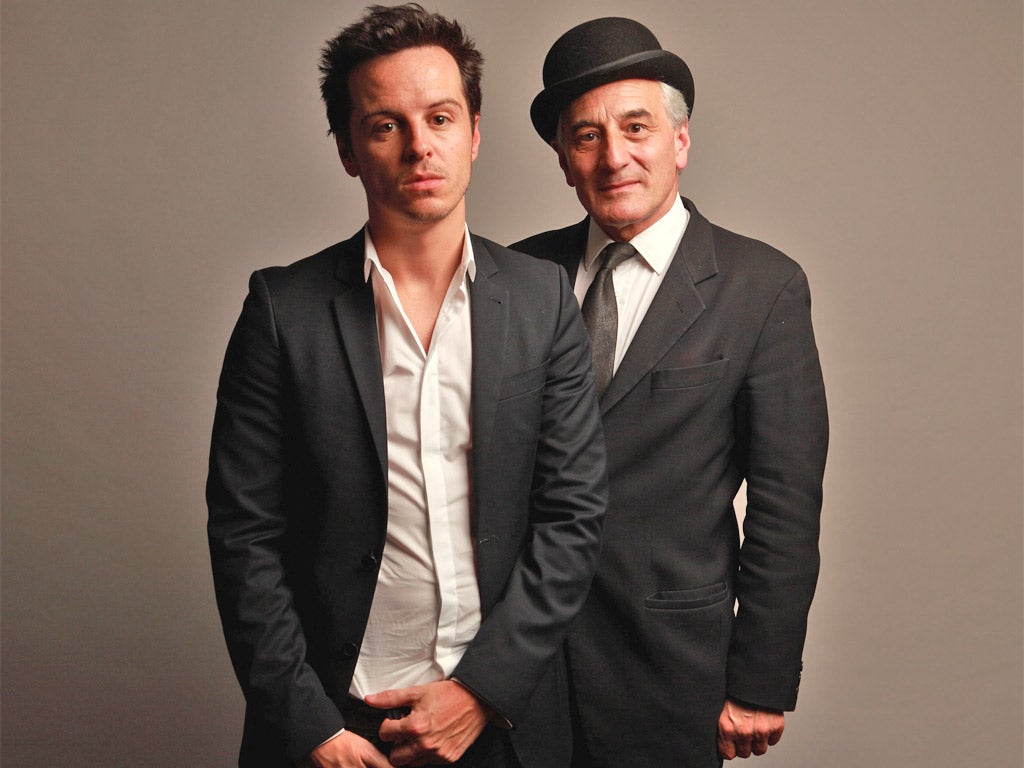The Week In Radio: Triumphant tour makes Ulysses bloom once more

Your support helps us to tell the story
From reproductive rights to climate change to Big Tech, The Independent is on the ground when the story is developing. Whether it's investigating the financials of Elon Musk's pro-Trump PAC or producing our latest documentary, 'The A Word', which shines a light on the American women fighting for reproductive rights, we know how important it is to parse out the facts from the messaging.
At such a critical moment in US history, we need reporters on the ground. Your donation allows us to keep sending journalists to speak to both sides of the story.
The Independent is trusted by Americans across the entire political spectrum. And unlike many other quality news outlets, we choose not to lock Americans out of our reporting and analysis with paywalls. We believe quality journalism should be available to everyone, paid for by those who can afford it.
Your support makes all the difference.Like many others before me, I attempted Ulysses in my late teens. I managed to read the whole of the spine before uttering an exhausted "Sod this" and turning my attention to what I felt was a more deserving literary cause: Jilly Cooper's Riders. It was either that or inject caffeine directly into my eyeballs. Apparently, I'm in good company: on attempting Ulysses, Katherine Mansfield is supposed to have said: "This is obviously the way of the future. Thank God I'm dying of tuberculosis."
Ulysses is the kind of book that certain scholarly types pretend to enjoy but most approach with the enthusiasm of a dentophobic going in for a root canal. So you had to hand it to Radio 4 for refusing to tread the populist path and broadcasting an adaptation, courtesy of Robin Brooks, in honour of Bloomsday. Over five and a half hours! On a Saturday! Until midnight! Had they lost their minds?
It was left up to us to decide how closely we should follow the customs of Bloomsday, during which hardcore Dubliners trace the progress of Joyce's protagonist Leopold Bloom through the city streets, while getting joyously hammered. True Joyce zealots, we were told by Mark Lawson, who was in Dublin doing the introductions in a yellow dressing gown, would have been up at dawn frying famous Bloomsday breakfasts of kidneys with "a fine tang of faintly scented urine."
So what of the adaptation? At the start it was meted out in hesitant 10-minute slots shoehorned in the middle of the regular weekend programmes, perhaps to allow us to pretend it was a long-running serial and switch off without shame. Thus, having been introduced to Stephen Dedalus (Andrew Scott, last seen scaring the bejesus out of us as Sherlock's nemesis Moriarty) looking mournfully out on the Martello tower at 9am, it was another hour and a half, just as many listeners were doubtless enjoying their Saturday brunch, before we were treated to the unmistakable sound of Henry Goodman's Bloom emptying his bowels ("uh uhmmmrrrgh" – plop!).
Ultimately, this curious apportioning of excerpts was unwise. Along with conveying a sense of uncertainty on the part of schedulers, it rendered the dramatisation of an already complicated novel unnecessarily disjointed. In all other respects, however, Radio 4's Ulysses was a triumph. Like Shakespeare read out loud, everything fell into place. We saw the whole Bloom – as cuckolded husband, grieving son, devastated father, dirty old man, regular human being racing through a panoply of moods and personas in the space of a day.
For the Joyce purists and the keepers of the estate, humourlessly fretting about what the old man would have thought, the folds in the narrative will probably have jarred. This was, of course, a heavily abridged version, which certainly made it less bold than the Irish radio station RTE's untampered-with 1982 version that ran at an epic 29-and-a-half hours. But who the hell wants to sit through that?
It's worth remembering that Joyce's detractors – and even some of his less hard-line fans – have long claimed that what Ulysses lacked was a decent editor. Here was the BBC finally doing the job and saving us a good 10 hours of stream-of-consciousness mumbling.
From a rigorous survey conducted among friends and family I've deduced that the average Ulysses reader rarely gets beyond page 50, which admittedly is more than I managed (though I'm proud to reveal that I read every page of Riders). At least now we can all say that we got to the end.
Join our commenting forum
Join thought-provoking conversations, follow other Independent readers and see their replies
Comments